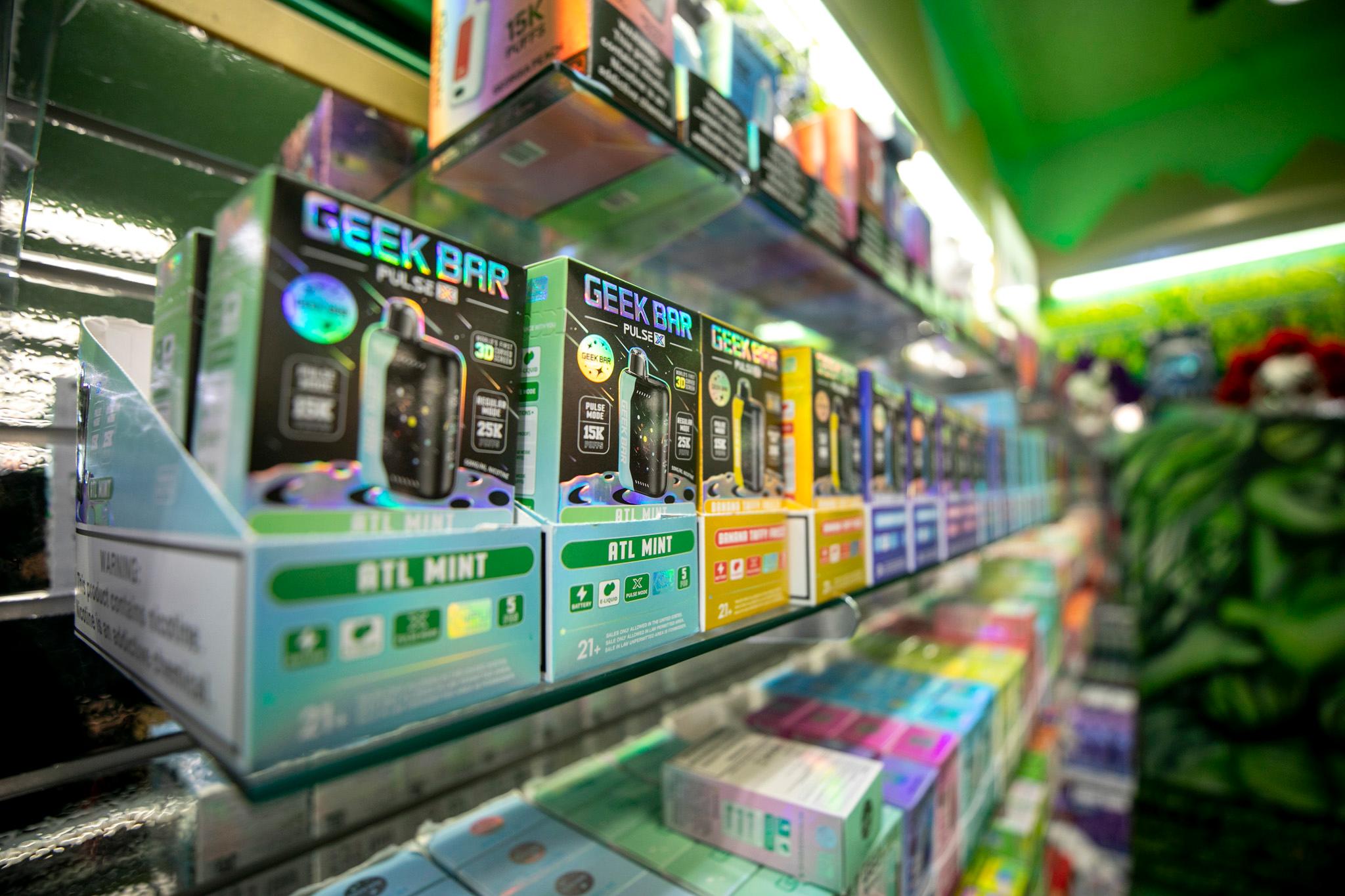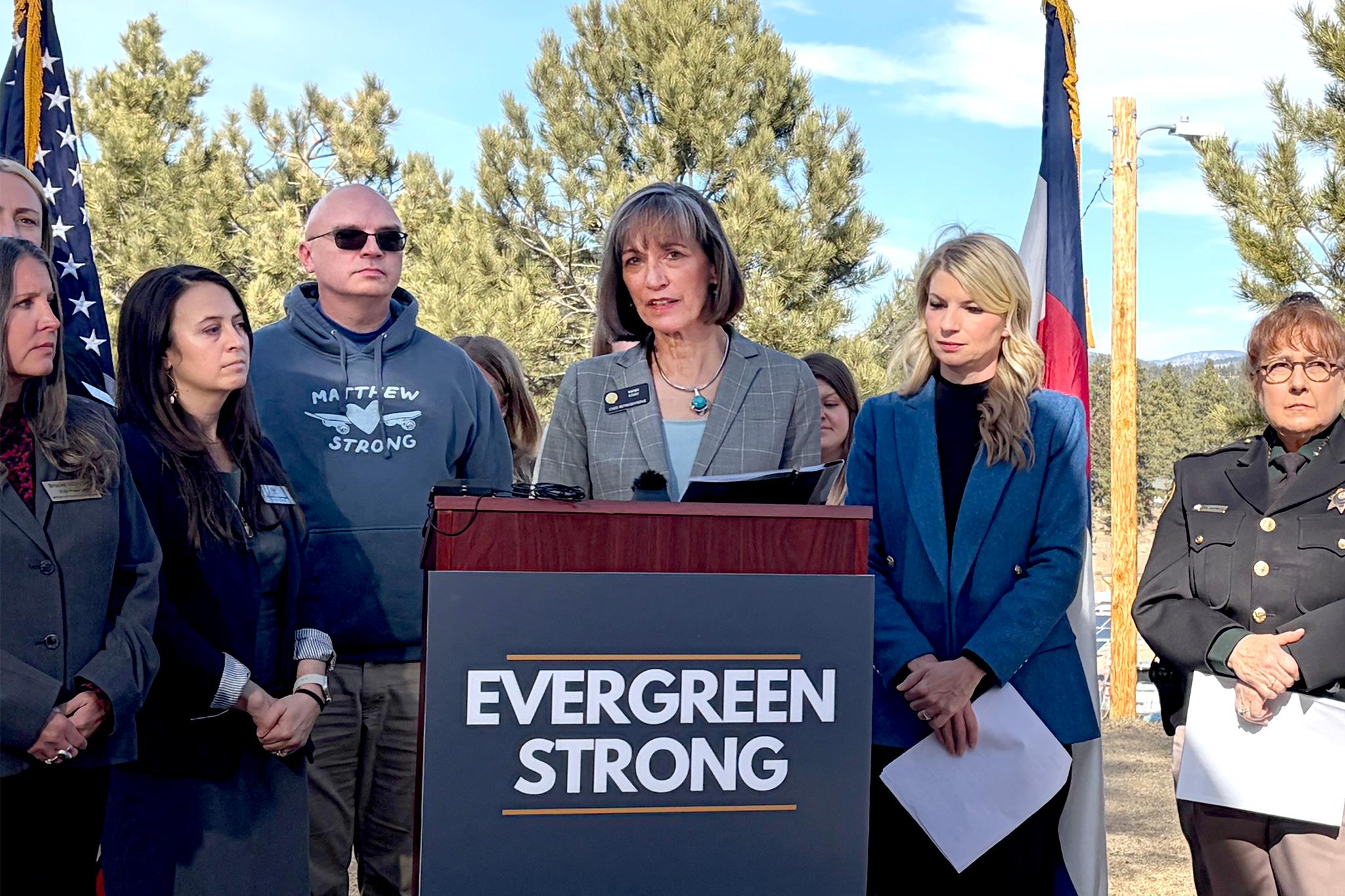
Updated Aug. 29, 2025 at 10:16 a.m.
In a move meant to limit youth consumption of nicotine, the town council in Eagle passed a ban on flavored tobacco Tuesday.
Eagle is Colorado's 14th municipality to pass restrictions on the sale of flavored tobacco products, which often come in enticing sweet, fruit, minty and candy-like varieties. Eagle followed the lead of towns in Summit County, which have recently taken the same step.
Other Colorado cities that approved similar proposals in recent years include Aspen, Boulder, Breckenridge, Carbondale, Denver, Dillon, Edgewater, Frisco, Glenwood Springs, Golden, Keystone, Silverthorne and Snowmass Village.
In November, Denver voters will weigh in on whether to repeal a ban passed by city council last year.
Nationwide, the list includes nearly 400 municipalities and six states that restrict the sale of flavored tobacco products, according to the Campaign for Tobacco Free Kids, a nonprofit based in Washington, D.C.
Backers of the ban in Eagle, including parents and public health advocates, told council members flavors in tobacco products lure kids to start consuming tobacco and/or nicotine, sometimes leading to a lifetime of addiction.
Michelle Hartel of a group called Mountain Youth told town council members a recent survey showed most minors are not turned down when they try to buy e-cigarettes.
“Among students who have used the electronic vapor products, the percentage who use them because they're available in flavors is incredibly high,” she said.
The former mayor of Glenwood Springs, Jonathan Godes, testified that when it banned flavored tobacco in 2019, along with some other reforms, like raising the age to purchase to 21, youth vaping rates were more than cut in half in five years.
Opponents of the ban warned it would drive retailers out of business and hurt sales tax growth. That didn’t happen, he said, noting that two vape stores decided to close before the ban was instituted.
“It didn't close any businesses. There's still a Smoker Friendly in Glenwood Springs,” Godes said.
Nicotine is not an innocuous substance that’s good for your health, said Peter Mueller, a health promotion and program administrator in Pitkin County, where he said a local ban helped reduce youth vaping rates without forcing businesses out.
“Students are four times more likely to start a cigarette habit if they have been addicted to nicotine," said Mueller.
Opponents included businesses that sell tobacco, like convenience stores, and Philip Morris International, which makes Zyn, an oral nicotine pouch. It comes in flavors like cinnamon, citrus, menthol, peppermint, wintergreen and coffee.
PMI has invested heavily in the booming Zyn brand, which it describes as a product that aims to reduce, rather than eliminate, harm for its customers. In January, the Food and Drug Administration authorized 20 Zyn products to be marketed and sold in the U.S. The agency had allowed Zyn to be sold legally as the FDA reviewed its premarket applications.
It’s also building a presence in Colorado, constructing a $600 million Zyn manufacturing facility in Aurora.
Multi-national tobacco companies like PMI have worked in recent years to develop and promote alternative nicotine products to traditional ones like cigarettes.
PMI spokesperson Amanda Wheeler at the Eagle town council meeting said its products aim to help adults quit smoking.
”We do everything every day to make sure that this doesn't end up a problem among our youth,” she said.
Wheeler asked town council members to slow down and make no decision Tuesday night, saying some retailers were unaware of the ordinance.
Another PMI representative, Prikita Kumar, the director of PMI’s U.S. Scientific Engagement Group, made the case, in a power-point presentation, arguing for the safety of the corporation’s products.
“Flavors are not a marketing trick. They're essential to helping adult smokers switch,” to less harmful, smoke-free products, like Zyn.
Kumar said tobacco use is actually trending down among U.S. youth.
“We see that tobacco use is at an all-time low,” Kumar said. “In fact, what's really troubling is that alcohol and cannabis is very high in the youth today.”
Jodi Radke, regional director for the Campaign for Tobacco Free Kids, told council members that flavors in tobacco serve as the catalyst for use amongst kids, and also keep adults using.
“They're using both — they’re dual using,” both smoking and vaping, rather than quitting, she said.
In 2017, fueled by the popularity of Juul e-cigarettes, Colorado led the nation in youth vaping, with double the national rate. It topped 37 states surveyed for the use of electronic cigarettes among high school students, according to numbers from a study by the CDC. Twenty-seven percent of Colorado high school students reported current use — using an electronic cigarette in the past 30 days.
Since then, its usage rate has fallen sharply, after a multi-faceted community response that included higher taxes, enhanced education and prevention and raising the legal purchase age to 21.
No tobacco products, including e-cigarettes, or nicotine pouches, are safe, according to the federal Centers for Disease Control and Prevention. “Most e-cigarettes contain nicotine, which is highly addictive and is a health danger for pregnant women, developing fetuses, and youth.”
Nicotine, no matter if it’s consumed via vape products, cigarettes, or nicotine pouches, poses unique dangers to youth because their brains are still developing, according to the agency.
The ban in Eagle is expected to go into effect by Jan. 1, 2026.
Editor's note: This story was updated to correct which flavors the Zyn nicotine pouch offers.









